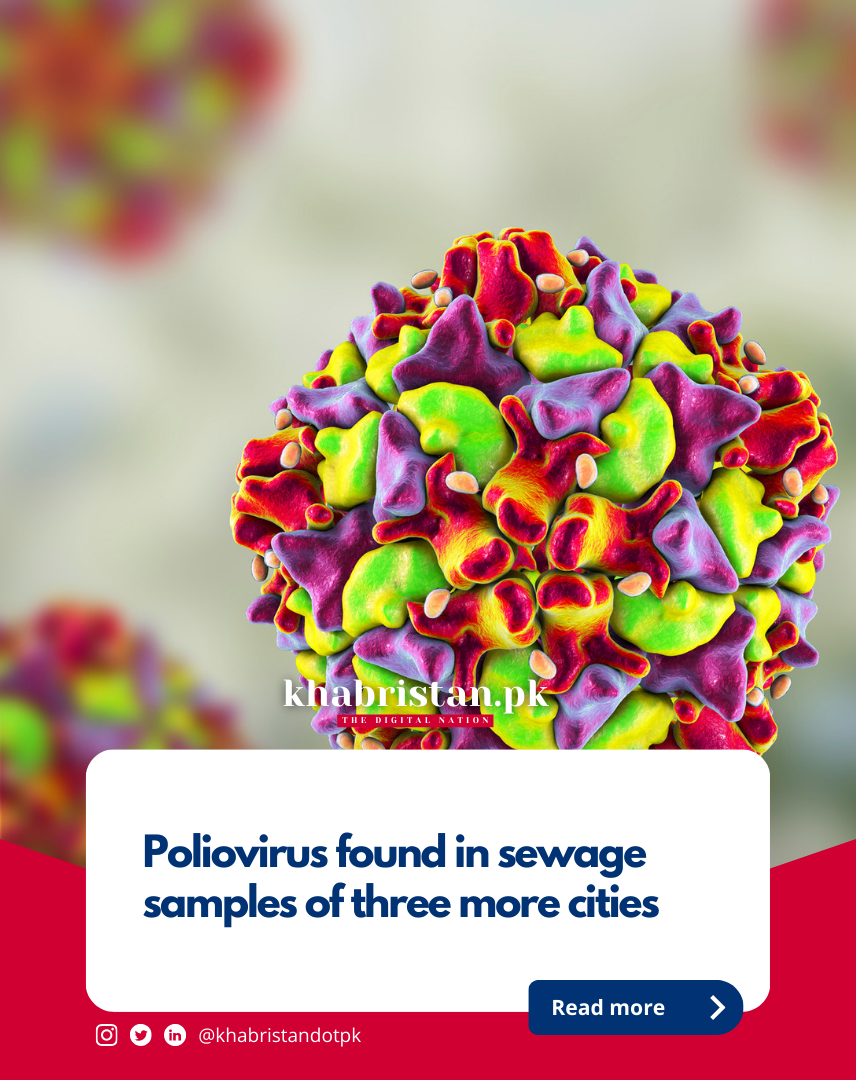The National Institute of Health confirms Type-1 Wild Poliovirus found in sewage samples of three more Pakistani cities, genetically linked to the imported YB3A genetic cluster of WPV1. The virus has been discovered in sewage samples of 34 districts this year, with the government’s commitment to eliminating polio from the country. Prime Minister aims for collaboration to eradicate the disease.

ISLAMABAD: The National Institute of Health (NIH) Islamabad has confirmed the detection of Type-1 Wild Poliovirus (WPV1) in the environmental samples of 3 more Pakistan cities, ARY News reported.
According to the Regional Reference Lab for Polio Eradication at the National Institute of Health (NIH), sewage samples collected from Karachi South, Karachi Central, Jamshoro and Hub contained poliovirus, which as genetically linked to the imported YB3A genetic cluster of WPV1.
“The virus has been found in sewage samples of 34 districts so far this year. All positive samples and the two human cases reported in 2024 contain the YB3A cluster, which had disappeared from Pakistan in 2021, but remained in circulation in Afghanistan and was reintroduced through cross-border transmission last year,” an official of the health ministry said.
A day earlier, three samples collected from different districts of Karachi and one sample collected from Pishin had been found positive.
Prime Minister Shehbaz Sharif last Friday expressed the hope that the government, in collaboration with the global partners and national institutions, would be able to eliminate polio from Pakistan very soon.
The prime minister, in a meeting with a delegation of Global Polio Eradication Initiative (GPEI) led by Dr Christopher Elias, Chair of Polio Oversight Board and President of the Bill & Melinda Gates Foundation’s Global Development Division, said the government was fully resolved to purge the country of this fatal disease.
The prime minister directed the Ministry of Information and Broadcasting to launch a joint awareness drive, in collaboration with the GPEI.
Recent sewage sampling efforts have revealed a concerning discovery: the presence of poliovirus in samples from three more cities. This alarming finding indicates an expansion of the geographical reach of the virus and raises questions about the potential impact on public health. The identification of poliovirus in sewage is particularly significant as it serves as an indicator of potential gaps in vaccination coverage and the risk of polio resurgence. Health authorities and policymakers are urged to take prompt and comprehensive action to address this emerging threat and safeguard community health. Increased surveillance, vaccination campaigns, and public awareness efforts are critical components of the response to prevent the further spread of poliovirus and protect vulnerable populations from the debilitating effects of this infectious disease.
Source: ARY NEWS
Poliovirus, specifically Type-1 Wild Poliovirus (WPV1), has been detected in sewage samples of three more cities in Pakistan. The virus has been found in 34 districts this year, with a genetic link to the imported YB3A cluster of WPV1. This cluster had disappeared from Pakistan in 2021 but reappeared through cross-border transmission from Afghanistan. Prime Minister Shehbaz Sharif expressed hope for the government to eliminate polio soon, emphasizing collaboration with global partners and national institutions. The government aims to launch a joint awareness drive with the Global Polio Eradication Initiative to combat this fatal disease.
Disclaimer:
This content is AI-generated using IFTTT AI Content Creator. While we strive for accuracy, it’s a tool for rapid updates. We’re committed to filtering information, not reproducing or endorsing misinformation. – Khabristan.pk for more information visit privacy policy








Leave a Comment